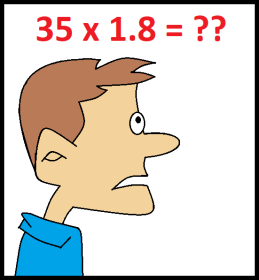Diabetes
THIS PAGE IS JUST AN ACCOUNT OF MY OWN PERSONAL EXPERIENCE OF DIABETES. IT IS NOT A SUGGESTION TO ANY OTHER DIABETIC AS TO HOW THEY SHOULD DEAL WITH THEIR OWN DIABETES. ANYONE WHO HAS ISSUES WITH THEIR DIABETES SHOULD SEEK THE HELP OF A HEALTHCARE PROFESSIONAL.
47 years and counting!
19th March 1971 - a date forever etched on my memory. The date on which I was told I had diabetes. Admitted to Chapel Allerton hospital in Leeds the day after. What an experience - a 15-year old newly diagnosed diabetic, on a ward with a load of middle-aged amputees (it was the only bed available at short notice), some of whom were delerious because of infection. It was not a fun time.
I spent just short of 45 years on multiple injections per day before switching to an insulin pump in 2015. In the time I've had diabetes, treatment and monitoring has changed beyond all recognition.
Nowadays, I am a volunteer speaker for Diabetes UK. Recently I've done talks for very different groups, from OAP groups to a primary school assembly. Hopefully I'm doing my bit to educate people and reduce, if ever so slightly, the complications which so many are suffering and which are decimating NHS budgets.
Another aspect I hope to address here is maths for diabetics. Lots of people struggle with arithmetic, and calculating your carbohydrate is so important. I'll try to give them some ideas about making the maths easier.
July 2018 - Diabetes v the Maths Geek
(A bit like Batman v Superman but with no capes)
I also considered calling this "How to multiply without the need to multiply".
An insulin pump does a good job of calculating the insulin you need when you bolus. However, for the pump to get it right, you need to enter the right amount of carbohydrate – and a lot of people find that difficult. If you’re not yet using a pump, then you first have to calculate the carbs and then do a further calculation for the insulin.
Yes, you might have a calculator handy, but you can’t guarantee it. What’s more, even if you do, you still need to do the right sums. What people often don’t
consider is that it’s not just about numbers, it’s about recognising how to simplify the problem – which is what I always do.
I'll use the numbers from the cartoon as an example:
You are about to eat something and the packet says that it contains 35g of Carbohydrate per 100g. You weigh the portion you want and it comes to 180g. So, how much carbohydrate are you getting? Let me do this several ways, each easier than the previous one.
1 The carbohydrate I’m having is 35 multiplied by 180 and then divided by 100
35 x 180 = 6,300. 6,300 / 100 = 63g.
(If you didn’t need a calculator to do 35 x 180, then you probably don’t need this article…)
2 Recognise that 180 / 100 = 1.8
35 x 1.8 = 63g.
3 Recognise that: 180 / 100 = 1.8,
also that 1.8 = 2 - 0.2
also 0.2 is a
tenth of 2, i.e. 2/10
so 35 x 2 = 70. 35 x 0.2 must be 7. 70 - 7 = 63g.
Multiplying by 2 in your head is so much easier than multiplying by 1.8!
August 2018 - a bit more on maths
If you think about it, multiplication is just repeated addition. For example, 7 x 4 is 7 + 7 + 7 + 7. Using that fact, here's another example of calculating carbohydrate.
Suppose you eat something and the packet says it contains 30g of carbodrate per 100g of whatever it is. You eat 130g. So how much carbohydrate?
You could say 130 is 100 x 1.3 and work out 30 x 1.3. But you could also say 130 is 100 + 10 + 10 + 10. If 100g of this foodstuff contains 30g of carbs, then 10g must contain 3g. So:
Weight of food eaten = 100 + 10 + 10 + 10 = 130 g.
Therefore carbs eaten = 30 + 3 + 3 + 3 = 39g.
Who needs a calculator?
October 2018 - food labelling
Over a period of several years - especially since moving on to a pump - I've come to the conclusion that food labelling is not all it's cracked up to be. Sometimes you can find two virtually identical products from different companies which claim totally different percentages of carbohydrate. Just how different is it possible for two digestive biscuits to be?
More than anything, I get annoyed about companies which show a total lack of common sense in their food labelling. One of the best (or worst?) I've seen is an ice cream company which tells you the carbohydrate content of their ice cream, not per 100g, but per 100ml.
Has it never occured to these idiots that millilitres are a measure of liquid? Ice cream is solid, not liquid. If you don't agree, you try measuring ice cream in a measuring jug.
Of course, you could always melt it. And then drink no-ice cream...
October 2018 - Diabetes UK
A couple of weeks ago I went to a Diabetes UK meeting in Darlington. They have appointed a new person - Clare - to manage the north of England. I think she will do such a good job and make things move where perhaps they have been a bit dormant for a while.
